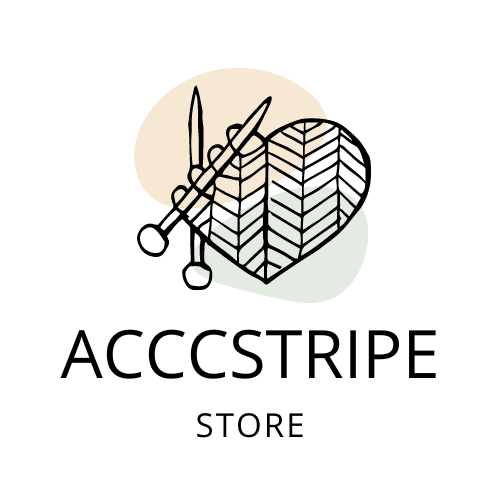Software development
What Is Incremental Model- Advantages, Disadvantages And When To Use It?
We have demonstrated the framework utilizing two defective situations corresponding to shift in the reaction fee, and change in the inlet flowrate. The framework can be readily utilized to multiphase systems similar to liquid–liquid and gas–liquid reactions by modeling mass–transfer rates as additional inlets. Software Development Life Cycle (SDLC) is extremely huge and full of varied improvement and testing actions, methodologies, techniques, instruments, and extra. It is only after combining all these efforts of the software https://www.globalcloudteam.com/ engineers that a software program or application is efficiently developed.
Content Material Administration System (cms)

Simply put, the SDLC fashions (software growth life cycle models) present incremental development model a structured blueprint, defining which stages the software program will undergo and the intricacies of each stage of software creation. On the opposite hand, the methodology is the spine of this course of, providing a toolkit of strategies, rules, and greatest practices that streamline the event journey, enhancing its effectivity and efficacy. The spiral mannequin is a risk management technique that integrates elements of the waterfall model with the model of the iterative development process inside the techniques improvement lifecycle (SDLC). Software builders make use of the spiral mannequin, which is preferred for advanced, large-scale initiatives.
Uncover The Benefits Of The Spiral Model Of Sdlc
Step 3 is the entire system, essentially step 2 extended by a GUI for manual input and time corrections. In incremental processes, the system is built in a collection of steps or increments. To manage the project as a whole, incremental processes start with a coarse requirement definition for the entire project. A plan for the complete project describing all increments relies on this requirement definition. In addition, an architecture for the whole system is developed firstly of the project.
Ship Better Software Faster With Plutora
Although this may be fantastic at the beginning of the project, you’ll have to keep increasing your assets and price range. Incremental growth ensures that builders can make changes early on within the process rather than waiting until the top when the allotted time has run out and the money has been spent. The foundation of Kanban is the Kanban board, which is usually a digital or bodily board divided into columns representing totally different levels of a process. Tasks, typically written on playing cards, move from one column (or stage) to the subsequent as they progress.

What Are The Advantages Of Iterative Growth (and Its Drawbacks)?
In the iterative model, the necessities are broken down into a quantity of items or modules which would possibly be developed separately and built-in one after another. The incremental model is an method to software growth that includes a quantity of iterations of smaller cycles, each producing a prototype of the software. These iterations improve or build on the previous prototype, allowing for testing and error detection early on. It is an effective technique for growing systems that assist altering requirements and reveal the feasibility of novel approaches.

Incremental Mannequin: Environment Friendly Development Methods
As these steps are unfolding, the software program improvement staff would repeat the cycles of prototyping and testing to make improvements to the internet site with every iteration. The Waterfall mannequin of the software program growth life cycle, often depicted as a cascading waterfall, is amongst the most classical approaches to SDLC. It is characterized by a linear and sequential circulate, where every stage commences only after the preceding one concludes.
Examples Of Iterative Development
Consequently, assured convergence to international optimality exists for nearly all identification issues in reaction systems, offered that some mild technical conditions are happy. Considering that each system step incorporates the results from all previous steps, many exams are iterated. This means that the exams of step i become so-called regression checks in steps i+1, …, n. Equation (9.12) is the exact inverse of (9.11) and an approximate inverse for the sample covariance matrix at (9.3), which provides a way to make iterative updates to ellipsoids used to detect anomalies. The difference between the batch ellipsoids and this approximation is negligible after a small variety of iterations [29]. However, since it’s a shut approximation of the batch, it’s still sensitive to observing a sequence of data coming from a multimodal distribution (a mixture model).
- This strategy harnesses the ability of the incremental mannequin, allowing organizations to effectively address evolving requirements whereas effectively managing the complexity of modern projects.
- Requirements of Software are first damaged down into a quantity of modules that can be incrementally constructed and delivered.
- For instance, you can check and release a beta version of the final product before the total launch.
- A chunk of the software’s performance is applied with each increment.
Traits Of Incremental Fashions

Dr. Barry Boehm launched this mannequin in 1986, aiming to incorporate flexibility in software design and growth. The entire process is split into a quantity of modules underneath the spiral mannequin. If a client wants an alteration, the instructed model can also be advantageous. The first increment is commonly a core product the place the essential requirements are addressed, and supplementary features are added in the subsequent increments. Once the core product is analyzed by the consumer, there could be plan improvement for the subsequent increment. Each iteration passes via the requirements, design, coding and testing phases.
Similar to sequential processes, incremental processes require a basic understanding of the necessities for the entire project at the beginning of the project. Although the incremental approach is extra flexible to alter in comparison with sequential fashions, incremental fashions are not suitable for projects based on unclear or unknown necessities. Iterative software growth aims to build a working product as quickly as potential, while constantly including and adapting new features based mostly on person feedback.
Each increment represents a partial system with added functionality, permitting for the project’s gradual improvement. The key characteristic of this model is its iterative course of, the place increments are developed, examined, and built-in one after one other into the evolving system. This iterative strategy facilitates frequent testing, quick feedback, and early defect detection. Incremental growth entails breaking down the event course of into smaller, manageable portions generally recognized as increments. Each increment provides new performance to the software program and builds on the work accomplished in the earlier increment. The final product is built through the gradual addition of those increments.
